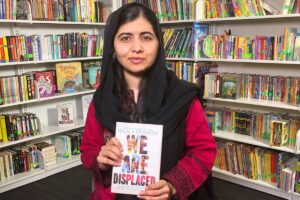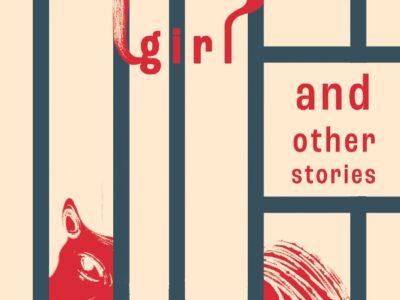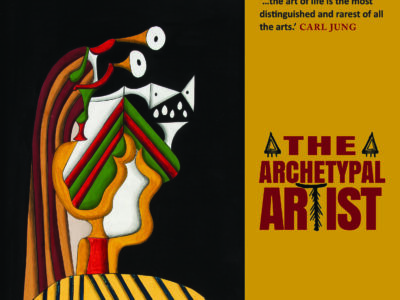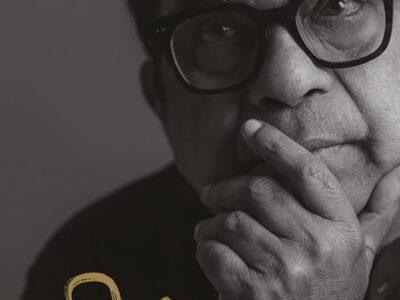To ‘choose’ to be displaced. That is not much of a choice – writes Nobel Prize recipient, author, and Pakistani activist Malala Yousafzai in her book, We are Displaced: My Journey and Stories from Refugee Girls Around the World.
It never fails to shock me how people take peace for granted. I am grateful for it every day. Not everyone has it. Millions of men, women, and children witness wars every day. Their reality is violence, homes destroyed, innocent lives lost. And the only choice they have for safety is to leave. To ‘choose’ to be displaced. That is not much of a choice – writes Nobel Prize recipient, author, and Pakistani activist Malala Yousafzai in her book, We are Displaced: My Journey and Stories from Refugee Girls Around the World.

Malala with Pragya at JLF 2021
In a world that is today as connected as it is dealing with the issues of refugees, Malala writes from within the displaced voices. Malala with her family was forced to flee from Swat valley as it was risky for her to continue to live in Pakistani. Today as she lives away from her country, and continues to fight for human rights, she writes about scores of others, some of who she also met, and says, there is no safe place for them to stay – ‘As of 2017, the United Nations counts 68.5 million people who were forcibly displaced worldwide, 25.4 million of which are considered refugees. The numbers are so staggering that you forget these are people forced to leave their homes.’
Malala in this book not just relives her past and the conditions that forced her to flee from her homeland, and her experiences since leaving Pakistan, she also lays bare the stories of few others like her from different countries experiencing various situations but to one end – having to choose between life and death. ‘And, as my family did a decade ago, they chose life,’ she adds.
On the last day of the 14th Jaipur Literature Festival that was held virtually, Malala spoke on a range of subjects close to her heart – education, human rights, and about her hopes for the India-Pakistan relationship
 On the last day of the 14th Jaipur Literature Festival that was held virtually, Malala spoke on a range of subjects close to her heart – education, human rights, and about her hopes for the India-Pakistan relationship. She was in conversation with journalist, policy, and culture consultant Pragya Tiwari.
On the last day of the 14th Jaipur Literature Festival that was held virtually, Malala spoke on a range of subjects close to her heart – education, human rights, and about her hopes for the India-Pakistan relationship. She was in conversation with journalist, policy, and culture consultant Pragya Tiwari.
Before writing the book Malala visited various refugee camps. She mentioned that around 80 million girls have been displaced from their homes, and said her story echoes that of millions of girls who do not have access to education, because of a myriad of reasons including early child marriages, poverty, cultural norms, wars, and conflicts.
















